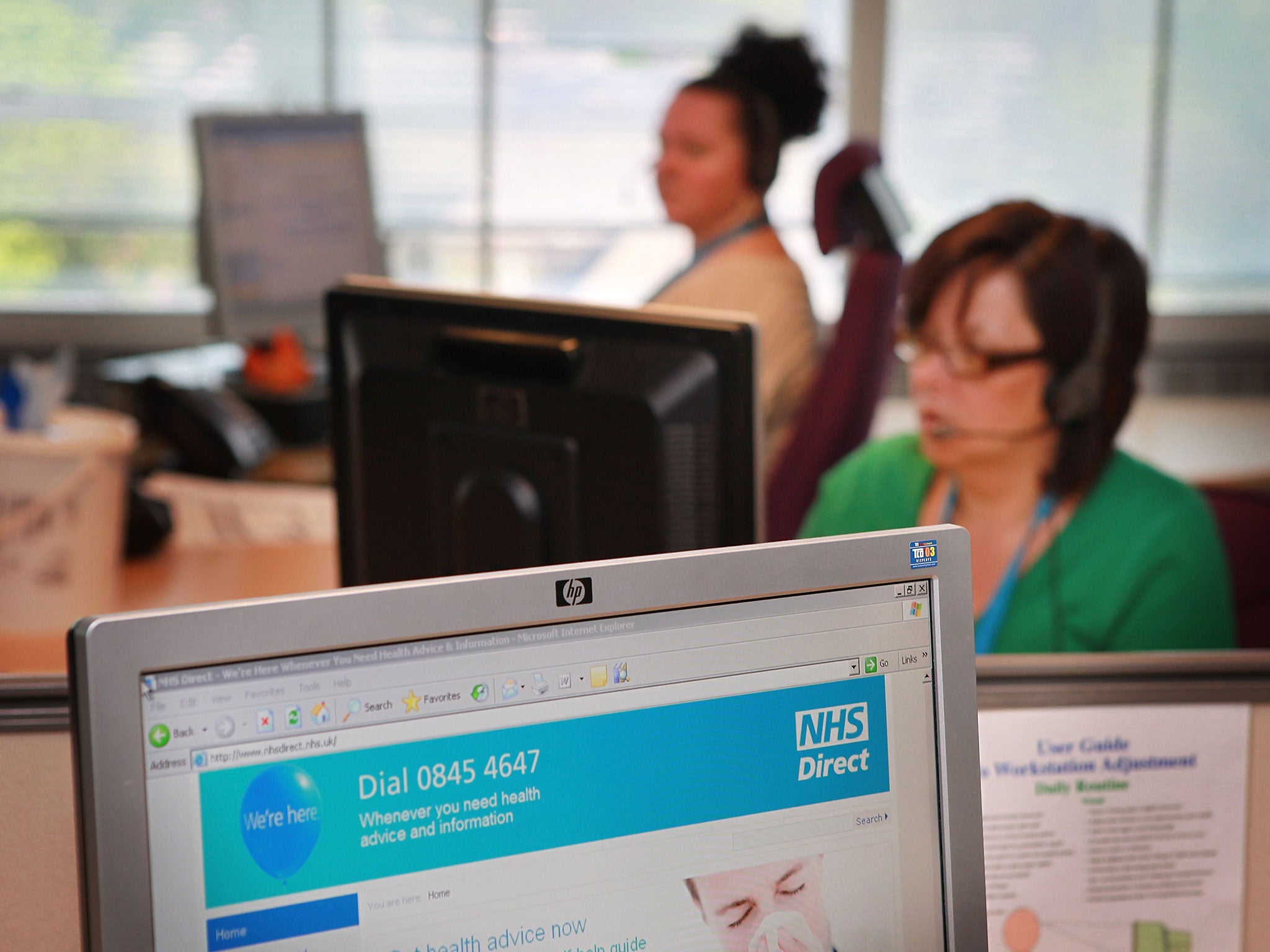Most people told to go to hospital after calling NHS 111 did not need emergency treatment
NHS 111 uses call handlers who are not medically trained and they rely on a computer to offer advice. The helpline that it replaced, NHS Direct, used nurses

Nearly 75 per cent of people told to go to hospital after calling an NHS helpline did not actually need emergency treatment, according to a new study.
The research suggests hundreds of thousands of hospital trips could be a waste of time that is adding pressure to the NHS amid the dire financial crisis affecting the health service.
Cambridge University researchers looked at 1,474 people who were told to go to accident and emergency by the NHS 111 service in Cambridgeshire, The Times newspaper reported.
A GP who reviewed the cases concluded that just 400 of them – 27 per cent -- should have been sent to hospital with 409 requiring no medical treatment at all. The rest could have been seen by an out-of-hours GP.
NHS 111 uses call handlers who are not medically trained and they rely on a computer to offer advice. The helpline that it replaced, NHS Direct, used nurses.
Professor Martin Roland, who led the study which was described in a paper in the BMJ Open Journal, said: “The software has got to be risk averse. If you’re going to be diagnosed by a computer, you can’t really do anything else.
“Experienced clinicians are more likely to make a reasoned judgment.”
About 1.1 million people a year are advised to go to hospital by NHS 111. If the same pattern occurs across the country as found in Cambridgeshire, then about 800,000 people could have sought hospital treatment without a good reason.
Professor Roland said medically trained staff should provide support for the 111 call centres.
“One of the real pressure points in the NHS at the moment is A&E, so anything to reduce pressure would be very welcome,” he said.
Adrian Boyle, head of quality at the Royal College of Emergency Medicine, told the Times that study “rings true” with anecdotal reports from hospitals.
“We know that where you have clinical involvement . . . the proportion of patients referred drops,” he said.
NHS England said: “NHS 111 is delivering a high quality service in the face of high demand. Only around 8 per cent of calls to NHS 111 result in advice to attend A&E."
Join our commenting forum
Join thought-provoking conversations, follow other Independent readers and see their replies
Comments
Bookmark popover
Removed from bookmarks